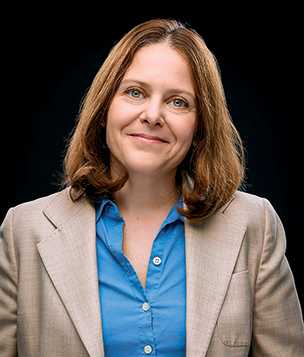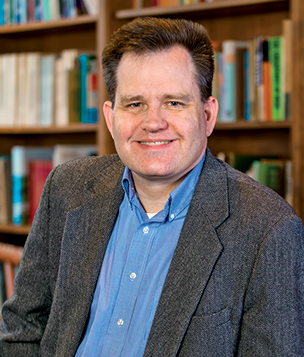President’s Message: What We’re Here For
One of the great strengths of Lafayette is that discussion, debate, and learning extend beyond the classroom. There are many additional venues for meaningful conversations to take place, both within student groups and organizations and through events sponsored by departments, programs, or the College as a whole.
A new lecture series called the Lafayette Symposium offers talks, panel discussions, and debates by speakers of opposing viewpoints.
At a time when questions are often asked about the status of debate and dialogue on college campuses, Lafayette offers some reassuring examples. Recently, I announced a new lecture series called the Lafayette Symposium, which offers talks, panel discussions, and debates by speakers who follow contrasting approaches, advocate opposing policies, or come from differing ideologies. The College’s mission statement calls on Lafayette to provide “an environment that fosters the free exchange of ideas.” We believe a lecture series that provides diverse viewpoints on a variety of intellectual, political, moral, and legal issues will be helpful in fulfilling that mission.

Sigal Ben-Porath University of Pennsylvania Professor
Our first two speakers brought contrasting approaches to the issue of free speech. University of Pennsylvania Professor Sigal Ben-Porath, author of the 2017 book Free Speech on Campus, explored the idea of “inclusive freedom,” calling upon colleges to affirm not only free speech but also the creation of an inclusive and respectful environment. Two weeks later, Princeton Professor Keith Whittington, who wrote Speak Freely: Why Universities Must Defend Free Speech, suggested that free speech is critical to a university’s most basic, fundamental, and essential purposes: fostering freedom of thought, ideological diversity, and tolerance.

Keith Whittington Princeton Professor
Even more valuable than the big talks in Colton Chapel was the opportunity to engage both speakers informally throughout the day. They visited classes, spoke to small groups of interested faculty and administrators, talked with guests at small dinners before each lecture, and answered additional questions from audience members after their talks concluded. I had the chance to meet with each of them personally and talk about what they are seeing on other college campuses around these issues. These smaller groups included faculty, staff, and students with varying views and responses, so conversation was lively but always collegial. One speaker, when asked if a debate had gotten a little too animated, responded, “Not at all. That’s what we’re here for.”The same can be said of the campus as a whole. Some discussions aren’t easy to have, but it is our responsibility as faculty and administrators to guide students through them—or sometimes listen when they are guiding us. That’s how we learn and move forward as a community. It’s what we’re here for.

Alison Byerly